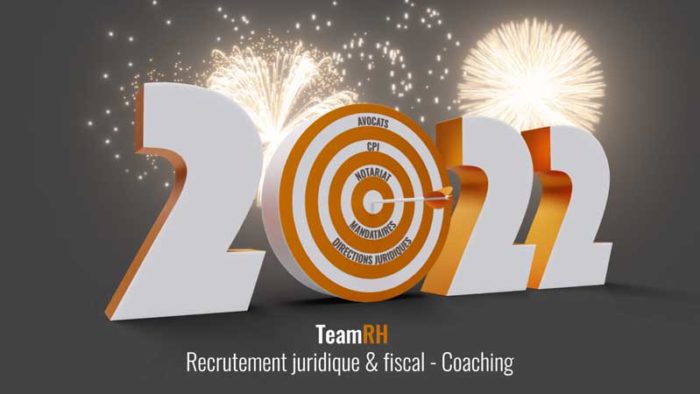A profession in law: the hard reality for young employees.
October 12, 2017 4:02 pmAccess to a profession in law, business, criminal law or general law is very often the ambition shared by most students of law school. Of course, the professions opened by legal studies are numerous: magistrate, company lawyer, judicial officer, judicial officer … But the professional wishes of these students are often oriented towards the wearing of the dress because they are told Is good to plead, whether to defend the widow and the orphan or simply the interests of a great company.
My job as a legal recruitment consultant brings me to work with a large number of lawyers, from the youngest to the most experienced. I will dwell in the following lines on an observation that is (unfortunately) growing: the disillusionment that these young professionals increasingly face.
A profession hardly accessible.
To touch the Grail, understand the oath, which symbolizes the end of a journey (or the beginning of another, of your choice!), The path is long. Say this: after obtaining a bachelor’s degree, it takes an average of eight years to hope to wear the aforementioned dress. Let me explain: five years of classical law at a French university in order to obtain a Master 2, a year of preparation through an IEJ (Institute of Judicial Studies). The year in which the student presents the entrance examination to the CRFPA (Regional Center for Professional Training of Lawyers). Once admitted, he left for 18 months of training. At the end of this cycle, he must present the exit exam, therefore, obtain the sesame, the CAPA (Certificate of Aptitude to the Profession of Lawyers). So eight years (to a few months). To this, students are asked to be more and more competitive. How, you ask? This involves first obtaining degrees on diplomas (a profile becomes interesting from the moment when he has an “Enough Well” backed by his Bachelor’s or Master’s degree).
Then, the best would be to be admitted to the Masters most recognized according to the specialty that one chooses. In addition to the above (you would say, in the classical sense), it would be ideal to undergo further training. For business lawyers, this translates into a Master’s Degree in HEC, ESSEC, ESCP or a prestigious LLM at the LSE, Harvard, Columbia. To go further, they are asked (or recommended, to the choice, again!), To obtain a foreign bar, the most common being that of New York. From there, I let you do the calculation …
The first collaboration
It is becoming increasingly common to consult CVs of young lawyers with ten years of post-baccalaureate studies, plus internships usually lasting six months. With such a baggage, we might believe that it is easier to get a first collaboration. If this is the case for some of them, it is not uncommon today to meet dozens who struggle to get hired. As a recruiter, I get many equally exemplary CVs. I systematically (and unfortunately) the same answer for them: I can not help them because my clients only call on me to recruit experienced profiles. So swept away the years of studies and the often very formative internships within beautiful teams of the place. I try to advise them on the presentation of a resume, the firms to be targeted according to the orientation they wish to have, the key contacts to send a CV because, It will always be less difficult to obtain results by directly contacting an associate, in whom certain elements may arouse curiosity or interest (similar academic training, passing through a “friend” law firm, notably by a known partner …) To send it via a generic email address and therefore take the risk that his CV is not received by the decision maker. However, the final advice is the same: do not give up and make as many targeted applications as possible.
Arrival in office: disillusionment
The lines that follow are inspired by a sad fact that I think is shared by a number of my colleagues. How many young lawyers, whose experience is between one and three years, tell us their wish to change jobs, fall off the dress and go into business? This wish can be seen as a simple professional retraining but at this stage, it is in my opinion, nothing. Let me explain.
Most experienced lawyers want to become jurists, usually doing so after a minimum of five to six years of practice, for multiple reasons: need for change, capitalizing on those years in the office to work closer to the operational, the necessity of progression (therefore why not get a senior position), the need to start a family and have a stable job, subsequently enabling them to combine private and professional life… The youngest (for a large majority of them at least) always give the same reason for leaving a company: bad experiences. Under this term, several elements are hidden: a frantic work schedule and extended hours, the senior employees taking all the interesting cases and therefore leaving the ‘less interesting’ or laborious tasks for the younger employees, a generally negative working environment, problematic or a complete absence of management, ‘complex’ personalities… And yet these young lawyers are willing to accept long days at work because they know that this is the daily schedule of a commercial lawyer.
In this manner, becoming a lawyer is for them an outlet, a means of escaping the world which is far from the dream they expected to live, a reality that is sometimes very difficult to process.
I could mention this harsh reality to this colleague, who has two years’ experience, having left two cabinets and approaching me to apply for a third. Their reasons? As for the first, few cases and limited training due to several partners leaving the cabinet and as for the second, harassment from various partners in the workplace. I could also remind this other associate of the reality, who after an outstanding education (having a master with distinction from LLM and a bar in New York), worked in a reputable cabinet, where she was frequently told that she was irrelevant to the company and that her work was of a poor quality. I recall spending two hours with this associate, having chosen a psychological consultation over an interview (I can assure you that I have no training, nor skills). It will come as no surprise to you that our rooms are equipped with tissues.
What should we do?
Other examples, I could give them but this is not the purpose of this article. The aim is not to disgrace these cabinets because that would not be fair. Successful collaborations, there are many. The evidence: in certain cabinets it is almost impossible to lay off junior associates who despite their arduous hours at the office, working on complex cases, well-educated and well-informed, are part of a team where solidarity and cohesion prevails, evolving alongside supportive and readily available partners, who are their mentors. Yes, this also exists. The aim of this article is to give these cabinets a wake-up call, as they will eventually be faced with a real shortage of candidates. Perhaps it is time to reevaluate the process, to find ways of catching talent and that associates, albeit expert in their field, learn to also become managers.
Training exists and is available. One of my clients, a Human Resources Manager in a prominent English cabinet, has already implemented this methodology. It is an integral part of human nature that change and accepting that we must improve, does not come easily.
The message is also for aspiring lawyers and young collaborators to keep in mind that bad experiences do not define a professional journey, but that you can find several good cabinets, good teams and good collaborations in this tumultuous market.
About TeamRH:
About TeamRH:
TeamRH, a recruitment firm in Paris, is a leading player in the legal and financial sector. We work with a national and international clientele, helping them to strive for a top performance. Our consultants benefit from an extensive knowledge of the market and of legal professions in order to better understand their task. We also offer Career & Life Coaching sessions (stress, demotivation, professional strategies to handle burn out).
TeamRH
5 rue de Hanovre
75002 PARIS
Tel : 01 42 33 26 12
E-mail : jobs[@]teamrh.com
See all our other available positions at: www.teamrh.com.












